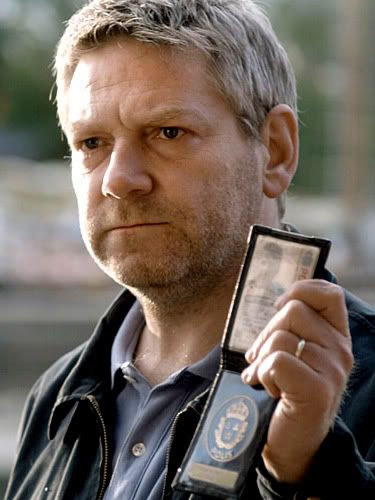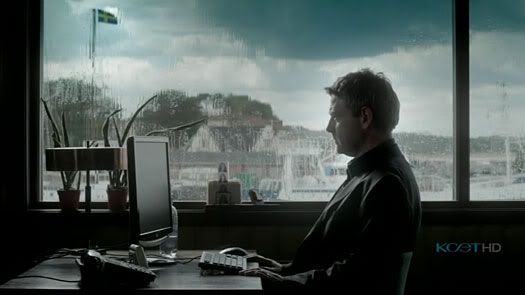
Mostly, the first season of the BBC police detective series Wallander is high-dose tedium. But what is good about it is superb.
Shows like this can be appreciated for what they're meant to be: glossy superficial entertainment with an interesting character as the crime solver. But damn, they're getting ritualistic. In the opening couple of minutes, something right nasty happens. Cut to the cop shop. You meet the detectives. You meet the star of the series, who you soon learn has Problems and a Secret in his background. You meet the boss, usually a uniformed bully who can't stand the detective of the show's title and the feeling is mutual. The scene-of-the-crime officers at the scene of the crime. The autopsy, ughh.
Colorful suspects. Halfway through the episode, it needs another "bump" to keep the audience from nodding off, so there's a second killing. The detectives grate on one another. The clues don't add up ... et cetera.
Wallander doesn't touch all these bases -- the boss, if that's what she is (I couldn't tell who was in charge) is sympathetic, insofar as she's anything -- but otherwise it's built from the standard blueprint. There must be more to the source novels by Henning Mankell, whom I'd never heard of before, although I gather he's as popular a crime writer as his fellow Swede, the late Stieg Larsson.
A lot of reviewers on the Netflix site applaud the direction. Well, it's professional enough with camera angles, tension, and release; and the editing is above par. Atmosphere too, but really, there's only so much mileage you can get from exterior shots of salmon-colored sunsets, trembling grain fields, all that. (I'd never realized rural Sweden looks like Kansas.)
The biggest drag on Wallander is that Detective Kurt Wallander is the only character who matters. The other detectives are transparent wraiths. Not that they are poor actors -- this is a big-time BBC production, and I suspect they hired good talent -- but the "supporting" cast has next to nothing to work with. They're confined to toxicology babble and lines like, "Kurt, why don't you go home and get some rest?"
Well, he doesn't and it's a jolly good thing too, because Kurt is played by Kenneth Branagh. Not that script is worthy of him, but he's on camera seemingly 90 percent of the time, and he doesn't waste a second of it. He finds things in the lines and, just as important, between the lines that you or I wouldn't dream was there.
Branagh is mesmerizing, scoring emotional points with words and situations that would come off like schlock in the hands of a lesser actor.
Watch this master at work and put up with the rest.
* * * * *
The subject of this posting must seem utterly trivial compared with the mass killing in Norway. I'm still too shocked to absorb that fully, and have nothing to say beyond the obvious, that it was a loathsome act with no possible justification. At the same time, when the Western world's so-called "leaders" force population replacement on their countries and criminalize anyone who protests, the opposition is bound to include a few madmen seething with frustration.



No comments:
Post a Comment